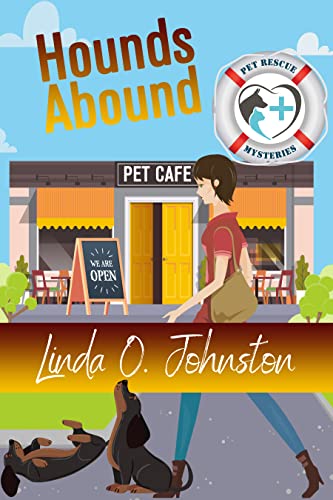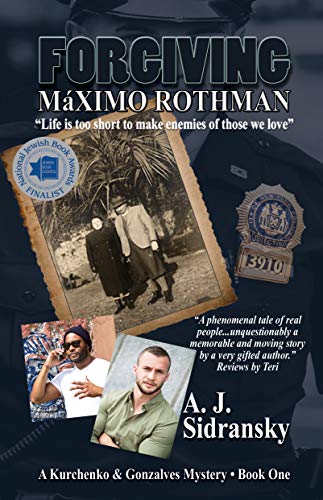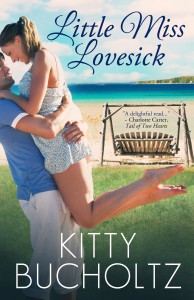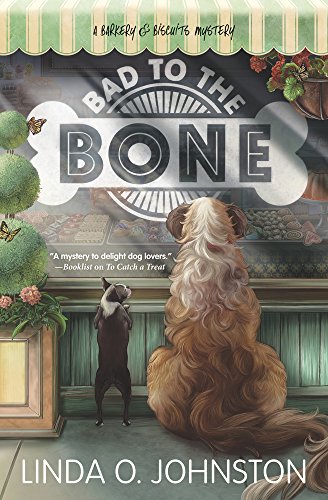Morality and Honor: Social Mores in Historical Romance
August 17, 2014 by Linda McLaughlin in category The Romance Journey by Linda Mclaughlin tagged as herstory, historical romance, Linda McLaughlin, morality, research, social mores, writingI was overly ambitious while writing my talk for last Saturday’s OCC/RWA meeting on Herstory: Writing and Researching the Historical Novel, so I’m going to excerpt some of the material I had to omit in my monthly blog post. This month, social mores.
 One of the biggest traps historical novelists can fall into is writing historical characters with 21st century mores. And nothing can make the reader want to throw a book across the room quicker. This especially applies to women. The double standard still exists, but it was much greater in previous centuries.
One of the biggest traps historical novelists can fall into is writing historical characters with 21st century mores. And nothing can make the reader want to throw a book across the room quicker. This especially applies to women. The double standard still exists, but it was much greater in previous centuries.War and social unrest have always upset the normal patterns of life, and social mores tend to fall by the wayside during such periods. Still, a historical female character who shows no regard for her reputation isn’t believable unless she’s already a fallen woman and has no reputation to lose. Personally, I don’t necessarily mind a heroine who flaunts society’s rules; I just need to believe that she knows what she is doing and is well motivated in her choices. The woman who doesn’t understand the consequences of her actions strains credibility. Women had a lot more to lose in the not-so-good old days. It’s especially tricky when you have a virginal heroine. People in those days set great store in virginity. But if we’re going to write sensual or erotic historical romance, we need to find a way for our heroines to bypass those restrictions.
Though the concepts may seem rather old-fashioned nowadays, honor and integrity were more important in the past, esp. for men of the upper classes. One of my favorite scenes in Downton Abbey is the one where the Earl of Grantham tries to buy off chauffeur Tom Branson if he will leave Sybil alone. Tom refuses and informs the earl that men in his class are’t the only ones with honor. Point, Tom!
However, morality did tend to vary by class. Upper and middle-class children were taught their manners and the difference between right and wrong while poor kids just tried to survive. In his childrens novel, The Shakespeare Stealer, Gary Blackwood introduces us to Widge, an orphan boy apprenticed to a dishonest clergyman. Dr. Bright teaches Widge a form of shorthand he has developed and then sends the boy to write down other vicar’s sermons. One Sunday, Widge hears Bright deliver one of the sermons he’d copied. At first, Widge doesn’t think too much about it. As he puts it, “As nearly as I could tell, Right was what benefited you, and anything which did you harm was Wrong.”
In George Bernard Shaw’s Pygmalion, the basis for My Fair Lady, Eliza’s father, Alfred P. Doolittle, talks about the undeserving poor and opines on middle class morality.
Morality and honor sometimes require our characters to act against their own best interests, which can be great for conflict.
So how do you know what the social mores of your period were? And how likely were they to be ignored?
See what was going on in the period. As I said, social mores often go out the window in wartime. And history being somewhat cyclical, periods of repression are usually followed by periods of licentiousness, like the English Restoration, a bawdy reaction to the moral restrictions of the preceding Puritan regime of Oliver Cromwell.
Also consider the prevailing religion of the time and location of your book. That will often provide guidance. Moral standards in Puritan New England and Cavalier Virginia during the Colonial period were quite different.
Look for etiquette books for the social niceties. For the Regency period, check out The Mirror of the Graces by A Lady of Distinction, first published in 1811. I have a paperback copy, but it’s available in e-book format format. Google etiquette and your period and you will likely find a lot of choices.
For those who missed the August meeting, I’ve added pages at the Reference Shelf on blog with two of my handouts. Primogeniture still to come.
British Titles: A Brief and Incomplete Guide
Source Books for Historical Writers: A Partial List
Feel free to leave questions and comments below.
Linda McLaughlin / Lyndi Lamont
0 0 Read moreWhat’s In A Name? More Than You Might Think
July 16, 2014 by Linda McLaughlin in category The Romance Journey by Linda Mclaughlin tagged as history, Linda McLaughlin, names, research, writingIn Romeo and Juliet, Shakespeare wrote, “What’s in a name? A rose by any other name would smell as sweet.” As we soon learned, Juliet’s name was extremely important. She was just any Juliet; she was a Capulet, mortal enemies of Romeo’s Montagu family.
 |
|
| copyright 2004 Art Explosion |
As any writer knows, finding the right name for your character is important, esp. the first name. Personal names come with expectations, even the historically improbable ones. Can you imagine Amber St. Claire of Forever Amber as Mary or Nancy? I didn’t think so. I read that Poppy was one of the names Margaret Mitchell considered for her southern belle before she came up with Katie Scarlett O’Hara. Somehow Poppy O’Hara just doesn’t have the same ring to it! Poppy sounds more like a servant girl.
Names have ethnic, class and sometimes religious connotations. Algernon and Reginald, for instance. Not exactly common working men names.
What do Sean, Ian and Ivan all have in common? They are all variants of John, but you wouldn’t name a character Ivan unless he’s from a Slavic country or background. In historical times, the same was true for Sean and Ian. Sean was Irish; Ian Scottish, and historical romances notwithstanding, no upstanding English aristocrat of the past would have allowed his son to be christened Sean or Ian. The priest wouldn’t have allowed it. The parish register would have shown the name as John.
In past centuries, the personal name stock was much smaller than it is now, though not necessarily the same. Prior to the Protestant Reformation, saint names were common. The stricter Protestants rejected many saint names in favor of Biblical names, like Hester and Ezekiel, and even more obscure names. They also invented the so-called virtue names: Faith, Hope, Charity, Prudence, etc.
When choosing names for a historical novel, I look in a book like The New American Dictionary of Baby Names by Leslie Dunkling and William Gosling that gives some historical context for the names. Plus I love the authors’ surnames. I keep thinking it should be Duckling and Gosling, though.
Surnames came into general use in the Middle Ages, and usually come from one of four sources: place of residence, occupation, nickname or patronymics, such as Johnson, Anderson, Davison. In Scotland, Mac at the beginning of a name means son of. In Ireland it’s Mc or O. Patronymics are common to many European countries. The Scandinavian countries also used matronymics, ending in dottir.
When writing an aristocratic character, I look for a less common place name, as the nobility and gentry were usually landed and were likely to take their surname from (or have given it to) the name of their estate. However, the older aristocratic were most likely descended from the Norman invaders and you can find a list of Anglo-Norman names at Wikipedia. Interestingly, Montaigu is one of the names listed. You can also find lists of British titles at Wikipedia, among other online sources. Burke’s Peerage is one of two definitive guides to the aristocracy, but it’s extremely expensive (over $800). You might be able to find an older copy at a local library. The other definitive source on the nobility is DeBrett’s Peerage.
Occupational surnames usually indicate humbler origins. Nearly every village had its baker, blacksmith, cooper, carter, miller and tailer. A few noted exceptions are Stewart, Spencer and Chamberlain, occupational titles of highly placed employees in the royal courts. The royal Stewart ancestors held the title High Steward of Scotland from the 12th century until Robert II became king in the 14th century.
Names based on nicknames, originally called bynames, were used to distinguish two people in a village with the same first name. Bynames include handles like Short and Littlejohn. These were not originally intended as long-term family names but evolved into that.
In the late nineteenth century, Henry Brougham Guppy made a study of farm family surnames as he considered them the most stay-at-home group in the county. In 1890 he published Homes of Family Names in Great Britain in which he categorized names by how common or unusual they were. He found that certain names were “peculiar” to primarily one county. Those are referred to as Guppy’s peculiar names. His book is now available from Project Gutenburg and Google Books.
American surnames come from all around the world and provide a great deal more variety for the novelist than other countries. I became fascinated with names when I was researching my family history. Hunting down my German ancestors was a challenge because the surnames were rarely spelled the same way twice. One of my ancestors started life as Conrad Buchle in Wurttemberg, Germany. A few generations later, his descendents last name was Beighley.
When I started writing around 1988, I collected every name book I could find that had any value for writing historical romance, and boy am I glad I did. Most of them are now out of print, but may be available as used books or in your local public or university library. You’ll find a brief list. I’ll hunt for more. I’m going to be speaking at OCCRWA on writing historical romance in August.
Name Sourcebooks:
American Surnames by Elsdon C. Smith, Genealogical Publishing Company, 2009. http://amzn.com/0806311509
Burke’s Peerage, Baronetage and Knightage, Burke’s Peerage, 107th Edition 2003 http://www.amazon.com/Burkes-Peerage-Baronetage-Knightage-107th/dp/0971196621/
A Dictionary of First Names, Patrick Hanks and Flavia Hodges, 2nd ed., Oxford Paperback Reference, Oxford University Press, 2006. Out of print.
The New American Dictionary of Baby Names, Leslie Dunkling and William Gosling, Signet, 1985, 1991. Better than the average baby name book because it gives some historical context for names. Out of print now.
New Dictionary Of American Family Names by Elsdon C. Smith, Gramercy Publishing, 1988, out of print.
The Oxford Dictionary of English Christian Names by E. G. Withycombe, Oxford University Press; First American edition edition 1947, paperback 1986. Out of print.
The Writer’s Digest Character Naming Source Book, Sherrilyn Kenyon, Writer’s Digest Books, 1994. Available at Amazon.com
Linda McLaughlin
0 0 Read moreemaginings: Life Off the Grid
May 16, 2014 by Linda McLaughlin in category The Romance Journey by Linda Mclaughlin tagged as 21st century, emaginings, Linda McLaughlin, reading, technologyI’ve been hiding out at the beach this week to stay out of the worst of the heat, but I didn’t plan on losing cable TV & Internet for the better part of two days. It reminded me of what life was like before the advent of the worldwide web. In some ways, it was even more retro than that, since we’re in a near dead zone here. Broadcast TV consists of three San Diego digital stations, when we can pick them up on the antenna. The iPad cellular connection is so bad here, it’s like going back to modem service. I mean sloooow. The most reliable technology we had was the radio. Turned out a cable guy had come into the neighborhood to hook up a new customer and somehow disconnected us in the process. My husband muttered about sabotage, but I reminded him that one should never assume malice until incompetence has been completely ruled out.
Now I’m done complaining, I have to admit it wasn’t all bad, because for the first time in quite a while, I sat and read. I’d picked up Naamah’s Kiss by Jacqueline Carey, a big hard cover fantasy novel on Sunday, expecting it would take weeks to read it. But without the distraction of the Internet, I grabbed the book, curled up in the recliner and real. It was pure bliss. (And yes, I know I could have been writing!) It was kind of odd to be reading print again. Late at night I was wishing I could make the font bigger. But it was good to relax and enjoy a big book, reminiscent of the long hot summers of my teen years in Azusa that I spent devouring every library book I could get my hands on.
The previous month was a pretty hectic one for me. I’m working on setting up a new blog and website, so I’ve been learning how to create WordPress pages and set up a nav system, and so on. I hope to have the new site ready before next month’s blog. I also took our own Elena Dillon’s awesome online class Social Media for the Dazed and Confused. I’m still dazed by all the information she threw at us, but maybe a little less confused. Seriously, if you have a chance to take a class from her, jump at it.
Life in this 21st century is a lot more complicated than it was way back in the 20th century, but believe me, we’ll miss all this technological interconnectedness if it ever goes away. And if you’re interested in a little nostalgia, check out this post about 10 Concepts That Didn’t Exist 10 Years Ago. (She’s right about nine of them. I’ve been reading e-books longer than that.)
Which piece of 21st century technology would you miss most? Your smart phone, iPad, laptop, flat screen TV? There are so many choices, I’m not sure.
Linda McLaughlin / Lyndi Lamont
0 0 Read moreGetting Organized in Digital Age: Mission Impossible? @LyndiLamont
January 16, 2014 by Lyndi Lamont in category The Romance Journey by Linda Mclaughlin tagged as Linda McLaughlinAnother January, another set of resolutions some of us will never keep. Is it futile?
I wish I knew the answer to that age-old question. I suspect resolutions and/or yearly goals work for some people but not others. Or maybe they work some years but not others. There are organizing methods that work for some people, but not everyone. All I do know is that I have to try doing something different this year to make some sense out of my messed up schedule. That won’t eliminate the chaos in my creatively messy mind though.
In the interests of organization, I signed up for the current OCC/RWA online class Going the Distance: Time Management for the Writer taught by our own Kitty Bucholtz. The class has just started but I’m hopeful of learning new techniques to use my precious time more productively. Goal setting will be part of the process. I’ve had good luck with that technique before, when I’ve paid attention to my goals and taken steps to meet them. Goals somehow seem more serious than “New Year’s Resolutions” which have a bad track record, plus goals can be revised or abandoned in favor of something better. Once a New Year’s resolution is abandoned, it’s all over until the next year. Right?
Here’s a blog article by James Clear (recommended by Alina K. Field) that I found interesting:
Why Trying to Be Perfect Won’t Help You Achieve Your Goals (And What Will)
Rather than worrying about goals and resolutions he recommends focusing on repetitive behavior, i.e. creating habits that will keep you moving towards whatever it is you want to accomplish.
Author P. J. Sharon wrote a blog this week on sticking to your plan that you may find interesting.
I swear this was all easier in the 20thy century. Nowadays social media is such a distraction. I set out to read my email in the morning, but keep finding interesting links to click on, or something that cries out to be tweeted, and before I know it, I have seven or eight tabs open in Firefox and two hours have disappeared, never to be seen again.
In the cause of taming the social media monster, here are links to a couple of blog posts you may find helpful. Don’t be put off by the title of the first. It’s a pretty good beginner’s guide to Twitter, and I found some helpful ideas in it.
The Ultimate Twitter Guide to Crush Your Competition
Infographic: The Secrets of a Killer Blog Post
At the Marketing for Romance Writers blog, Erin Moore asks: Newbie World: Do I Really Need Social Media? Good advice for the new author.
Middle Grade author Chris Eboch on A Year of Success contains more links to older blog posts on the subject.
If anyone reading this post has any brilliant ideas or getting or staying organized, please let me know. Will you be setting goals? How did you do in 2013? I’d love to hear about your successes.
Hope to have some progress to share next month.
Linda McLaughlin / Lyndi Lamont
Linda McLaughlin grew up with a love of books and history, so it’s only natural she prefers writing historical romance. She loves transporting her readers into the past where her characters learn that, in the journey of life, love is the sweetest reward.
She also writes erotic romance under the name Lyndi Lamont, and is one half of the writing team of Lyn O’Farrell.
You can find her online at http://www.lindamclaughlin.com or http://www.lyndilamont.com.
Blog: http://flightsafancy.blogspot.com/
Facebook:
Linda McLaughlin Author http://www.facebook.com/LindaMcLaughlinAuthor
Lyndi Lamont http://www.facebook.com/LyndiLamont
Twitter: @LyndiLamont
Season’s Greetings from the OC
December 16, 2013 by Linda McLaughlin in category The Romance Journey by Linda Mclaughlin tagged as Linda McLaughlinWishing you a happy holiday and a healthy and prosperous New Year.
Linda McLaughlin aka Lyndi Lamont
0 0 Read moreAffiliate Links
A Slice of Orange is an affiliate with some of the booksellers listed on this website, including Barnes & Nobel, Books A Million, iBooks, Kobo, and Smashwords. This means A Slice of Orange may earn a small advertising fee from sales made through the links used on this website. There are reminders of these affiliate links on the pages for individual books.
Search A Slice of Orange
Find a Column
Archives
Featured Books
FORGIVING MAXIMO ROTHMAN
Life is too short to make enemies of those we love.
More info →70 THINGS TO DO WHEN YOU TURN 70
70 Things to Do When You Turn 70 celebrates the opportunities to have meaningful and fulfilling lives at 70 and beyond.
More info →Newsletter
Contributing Authors
Search A Slice of Orange
Find a Column
Archives
Authors in the Bookstore
- A. E. Decker
- A. J. Scudiere
- A.J. Sidransky
- A.M. Roark
- Abby Collette
- Alanna Lucus
- Albert Marrin
- Alice Duncan
- Alina K. Field
- Alison Green Myers
- Andi Lawrencovna
- Andrew C Raiford
- Angela Pryce
- Aviva Vaughn
- Barbara Ankrum
- Bethlehem Writers Group, LLC
- Carol L. Wright
- Celeste Barclay
- Christina Alexandra
- Christopher D. Ochs
- Claire Davon
- Claire Naden
- Courtnee Turner Hoyle
- Courtney Annicchiarico
- D. Lieber
- Daniel V. Meier Jr.
- Debra Dixon
- Debra H. Goldstein
- Debra Holland
- Dee Ann Palmer
- Denise M. Colby
- Diane Benefiel
- Diane Sismour
- Dianna Sinovic
- DT Krippene
- E.B. Dawson
- Emilie Dallaire
- Emily Brightwell
- Emily PW Murphy
- Fae Rowen
- Faith L. Justice
- Frances Amati
- Geralyn Corcillo
- Glynnis Campbell
- Greg Jolley
- H. O. Charles
- Jaclyn Roché
- Jacqueline Diamond
- Janet Lynn and Will Zeilinger
- Jaya Mehta
- Jeannine Atkins
- Jeff Baird
- Jenna Barwin
- Jenne Kern
- Jennifer D. Bokal
- Jennifer Lyon
- Jerome W. McFadden
- Jill Piscitello
- Jina Bacarr
- Jo A. Hiestand
- Jodi Bogert
- Jolina Petersheim
- Jonathan Maberry
- Joy Allyson
- Judy Duarte
- Justin Murphy
- Justine Davis
- Kat Martin
- Kidd Wadsworth
- Kitty Bucholtz
- Kristy Tate
- Larry Deibert
- Larry Hamilton
- Laura Drake
- Laurie Stevens
- Leslie Knowles
- Li-Ying Lundquist
- Linda Carroll-Bradd
- Linda Lappin
- Linda McLaughlin
- Linda O. Johnston
- Lisa Preston
- Lolo Paige
- Loran Holt
- Lynette M. Burrows
- Lyssa Kay Adams
- Madeline Ash
- Margarita Engle
- Marguerite Quantaine
- Marianne H. Donley
- Mary Castillo
- Maureen Klovers
- Megan Haskell
- Melanie Waterbury
- Melisa Rivero
- Melissa Chambers
- Melodie Winawer
- Meriam Wilhelm
- Mikel J. Wilson
- Mindy Neff
- Monica McCabe
- Nancy Brashear
- Neetu Malik
- Nikki Prince
- Once Upon Anthologies
- Paula Gail Benson
- Penny Reid
- Peter J Barbour
- Priscilla Oliveras
- R. H. Kohno
- Rachel Hailey
- Ralph Hieb
- Ramcy Diek
- Ransom Stephens
- Rebecca Forster
- Renae Wrich
- Roxy Matthews
- Ryder Hunte Clancy
- Sally Paradysz
- Sheila Colón-Bagley
- Simone de Muñoz
- Sophie Barnes
- Susan Kaye Quinn
- Susan Lynn Meyer
- Susan Squires
- T. D. Fox
- Tara C. Allred
- Tara Lain
- Tari Lynn Jewett
- Terri Osburn
- Tracy Reed
- Vera Jane Cook
- Vicki Crum
- Writing Something Romantic
Affiliate Links
A Slice of Orange is an affiliate with some of the booksellers listed on this website, including Barnes & Nobel, Books A Million, iBooks, Kobo, and Smashwords. This means A Slice of Orange may earn a small advertising fee from sales made through the links used on this website. There are reminders of these affiliate links on the pages for individual books.











































